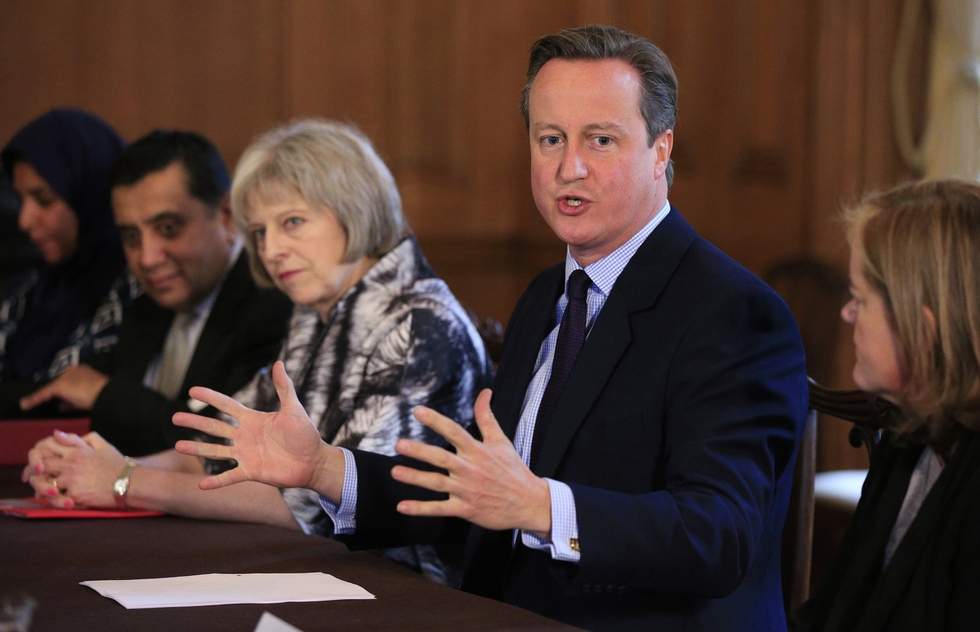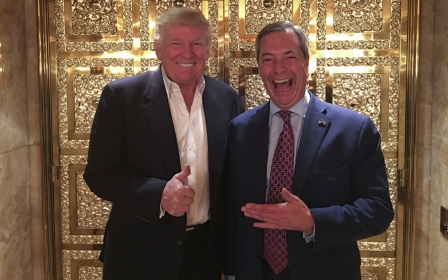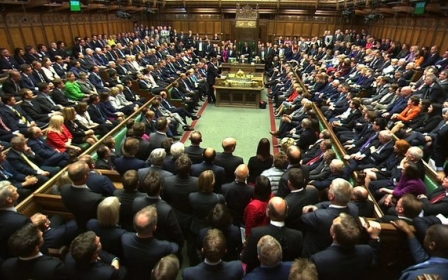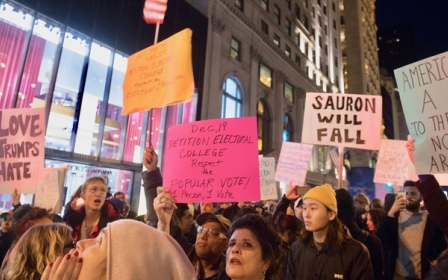UK integration report 'divisive' say Muslim groups

A government report on integration of immigrants in the UK has been described as "inflammatory" and "divisive" by its critics.
The Casey Review says that segregation is on the rise in the UK among other findings. It suggests that immigrants swear an “integration oath” to maintain British values and that these values be taught in schools.
Social welfare expert Louise Casey was asked to lead the review at the request of then-prime minister David Cameron as part of the government's efforts to tackle extremism.
The report, which was published on Monday, said that some Muslims and members of other minority faith groups showed less progressive views, for example towards “women’s equality, sexuality and freedom of speech”.
But Mohammed Shafiq, chief executive of the Ramadhan Foundation, said it was an "inflammatory" and "divisive" report, that deliberately targeted one community over others.
"Sadly in today's Britain, Muslims are seen as an easy target to attack by politicians, commentators and parts of the media without any regard for the impact this has on communities.
"There was no mention about the responsibility of the white community to help with integration, as many white families flee mixed areas as ethnic minorities move into a particular area," Shafiq said in a statement.
“We are saddened that once again British Muslims have become a political football which is bashed from time to time without any regard for the impact this has on individuals who then are subjected to threats and violence,” he added.
On his part, Harun Khan, secretary general of the Muslim Council of Britain, said he feared the report was one-sided, focusing on Muslims without tackling the role of other British nationals in welcoming immigrants and helping them to integrate.
In a statement, Khan said the report could be a missed opportunity. "We need to improve integration, and it needs to involve the active participation of all Britons, not just Muslim.
"As former Prime Minister David Cameron has stated: ‘integration is a two-way street’. The report has little discussion on white flight, and could have delved deeper into the economic structural barriers to integration.”
He also disputed misconceptions that Muslims and Islam are incompatible with the British lifestyle and culture, and the notion that Muslims are not civilised enough to be part of the British society.
Meanwhile the Joint Council for the Wefare of Immigrants (JCWI) said in a statement that Prime Minister Theresa May needed to rethink the socially destructive immigration policies she implemented while home secretary.
"Integration comes when immigrants and the communities they live in can trust each other," said Saira Grant, its chief executive in a statement. "Negative rhetoric against immigrants perpetuated by certain media and politicians permeates into the public psyche and results in racism and xenophobia."
Reaction on Twitter was also critical.
The government is liable
The report was commissioned by Cameron and then-home secretary Theresa May as part of the government's efforts to tackle extremism. Among its other findings were:
- the government failed for more than a decade to ensure that social integration in the UK keep pace with the rate of immigration
- some communities are violent against women, including domestic abuse practices, female genital mutilation, forced marriage and so-called ‘honour’-based attacks
- there had been 62,518 reported hate crimes in 2015-16, based on race, sexual orientation, religion, disability and transgender - a 19 percent rise from the previous 12 months
- Muslim and Hindu women were more than twice as likely as Muslim or Hindu men to not speak English
- Pakistani and Bangladeshi women were significantly more likely to be unemployed
- the Muslim population had a stronger sense of identification with the plight of the Ummah, or global Muslim community, rather than Britain and British values.
However, Casey also admitted that there was a “vicious circle” in which Muslims felt they were being blamed for terrorism and extremism, leading to suspicion, mistrust and hostility.
“Every time there’s a terrorist attack people automatically blame a person that’s called a Muslim. That’s wrong. Muslims are no more responsible for terrorist attacks than I am for the IRA," Casey told BBC 4’s Today programme.
The report referred to a 2015 UK poll showing that more than 55 percent of those interviewed believed that there was a fundamental clash between Islam and the values of British society. At the same time 46 percent of British Muslims felt that being a Muslim in Britain was difficult due to prejudice against Islam.
Casey said people should be able to discuss issues in the report without being “worried about being called racist or Islamophobic”.
The Casey review also states that the Crime Survey for England and Wales states that the actual level of hate crime experienced – including anti-Semitic and Islamophobic attacks – is more than four times the number of recorded incidents.
These attacks apparently increase following "trigger" events, such as the conflict in Israel and Gaza, and following the EU referendum, as perpetrators appeared to feel emboldened by the events and the language used around them.
New MEE newsletter: Jerusalem Dispatch
Sign up to get the latest insights and analysis on Israel-Palestine, alongside Turkey Unpacked and other MEE newsletters
Middle East Eye delivers independent and unrivalled coverage and analysis of the Middle East, North Africa and beyond. To learn more about republishing this content and the associated fees, please fill out this form. More about MEE can be found here.




